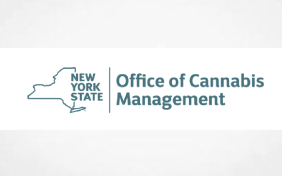A broad coalition of cannabis industry groups came together to work with the OLCC on common sense legislative updates to support business operations and protect public health and safety.
SALEM, OR – On June 29, 2021, Governor Brown signed into law SB408, which Oregon lawmakers passed earlier this month.
The bill, sponsored by Senator Floyd Prozanski, focuses on regulatory modernization for Oregon’s maturing cannabis industry.
Unique for this bill is that it was crafted by a coalition of the major cannabis industry associations, working with the OLCC to meet the needs of the evolving market and update regulations created when the market was first legalized. This coalition effort speaks volumes for the matured growth of Oregon’s Cannabis industry.
“The passing of SB 408 into law is a huge step towards overhauling and modernizing Oregon’s cannabis regulations – creating a better business environment for the industry. Its success is the direct result of the state’s largest trade associations coming together, creating a single legislative agenda, speaking with a unified voice, and lobbying the legislature and the OLCC as a coalition.”
-Jesse Bontecou, Co-Director of the Oregon Retailers of Cannabis Association (ORCA)
“This represents the first major step toward aligning our state’s cannabis regulations with the changing reality of the industry and the priorities of Oregonians. We’re moving away from fear-based rules to those designed to help a modern industry succeed. Much is owed to the OLCC, the legislature, and the Governor’s office for engaging with us through this critical process. This is a great start.” Michael Getlin, Founder and Director, Oregon Industry Progress Association.
Last year Oregon cannabis retail sales hit a record-breaking $1.1 billion, resulting in unprecedented tax revenue and job growth for our state. Despite record sales numbers, Oregon’s cannabis industry is struggling to stay solvent as an evolving industry made up of entrepreneurs and small business owners, due largely to over-regulation limiting business growth.
“Over-regulation particularly impacts small businesses who do lack the capital to defend against violations and jeopardizes businesses of all sizes looking to compete on a national level.” Kim Lundin, Executive Director, Oregon Cannabis Association, “The exponential growth of the regulated cannabis market has great potential for economic development and tax revenue for Oregon, but our quickly evolving industry needed these legislative fixes to support that continued growth.”
Items in this omnibus bill include:
● Updated compliance practices for the OLCC, amending the grounds for revocation, suspension or restriction of license to major violations, moving enforcement to a more compliance-based approach working with business owners for improved public health & safety.
● Improves transparency around the violation and licensing process, requiring the OLCC to notify Licensees before delaying the processing, approval or denial of a license application.
● Allows producers under common ownership to transfer product between their licenses allowing them to make better use of shared resources.
● Provisions allow producers to receive extract products made from their plant material back from a processor as long as the product does not include cannabis from another producer.
● Supporting plant diversity by allowing qualified producers to receive marijuana seeds from any source within Oregon.
● Simplified rules around tracking documents for deliveries, requiring only proof of the originating license (i.e. who is legally responsible for the product), proof that the driver is properly licensed, and an accurate manifest of all the product in the vehicle.
● Doubled possession limits on all cannabis products except for seeds and immature plants and increasing the concentration limits in edibles to 100 mg. The increase brings Oregon in-line with other states and will allow the OLCC to write rules to increase the purchase limits.
● Require the OLCC to study and identify rule and statute changes that would further reduce the use of plastics by the cannabis industry and submit its findings to the Legislature.
“These improvements will forever change the daily life of the farmer. Now producers will be able to have complete control over extract items made exclusively from their flower along with the ability to increase genetic diversity.” Amanda Metzler, President, F.A.R.M.S. Inc. “Most importantly, those with multiple producer licenses will be able to operate more efficiently by allowing producer to producer transfers.”
SB408 will go into effect on January 1, 2022, however, the OLCC and OHA may take action before then to begin their own rulemaking in response to the provisions in the bill. As with the crafting of the legislation, this is expected to be done in partnership with cannabis industry leaders.

















